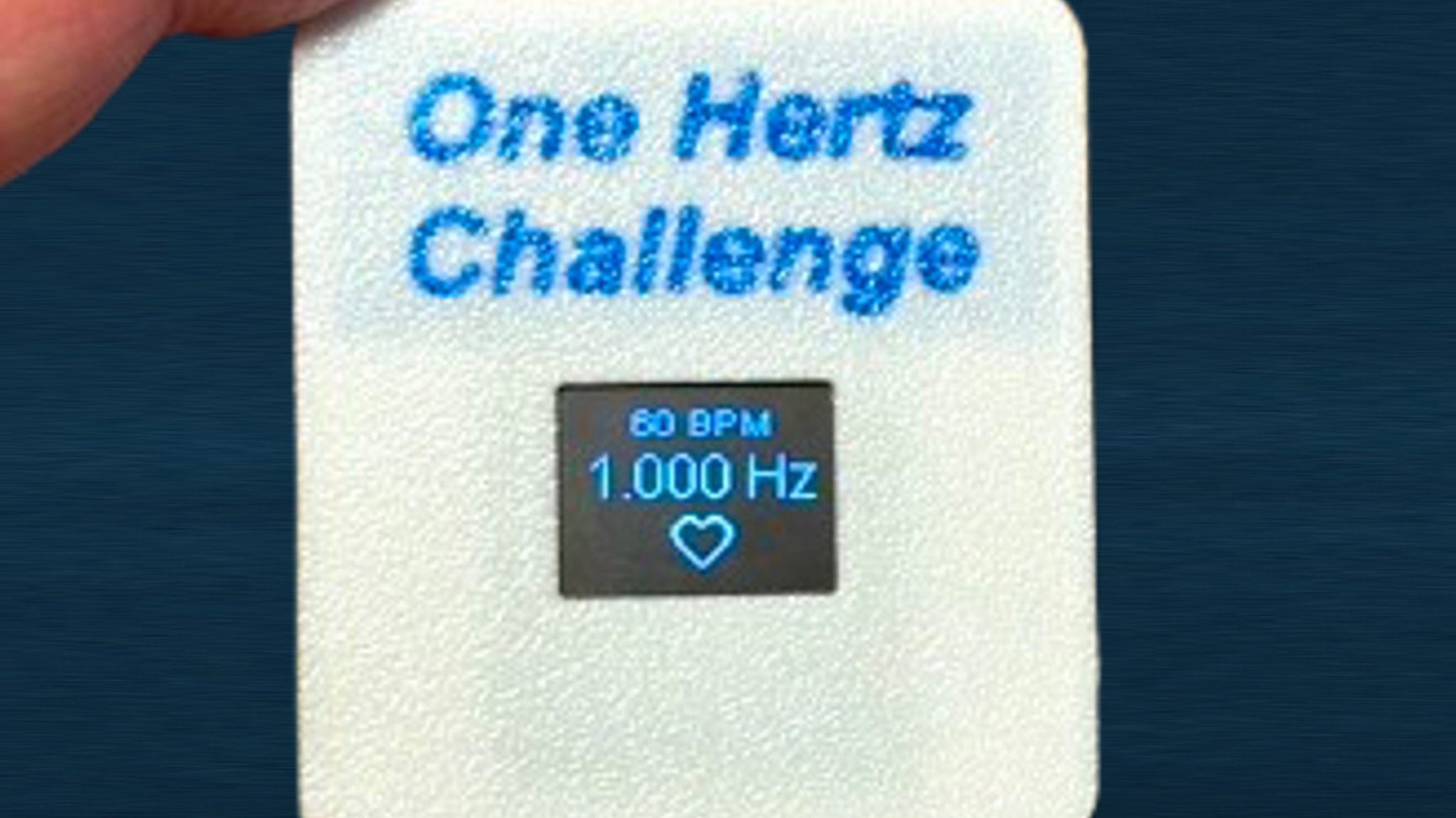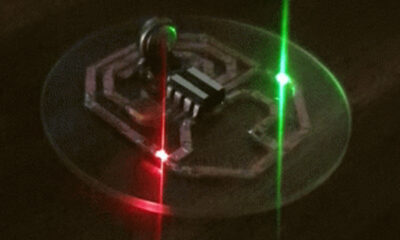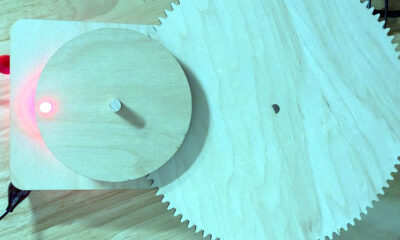Technology
Innovators Showcase Arduino Heart Rate Sensor in One Hertz Challenge

Developers and tech enthusiasts are pushing the boundaries of biometric technology with a new heart rate sensor designed for the 2025 One Hertz Challenge. This innovative project, spearheaded by Ludwin, utilizes an Arduino-based system to measure heart rates in real-time, highlighting the accessibility of such technologies for everyday users.
The heart rate sensor is built around a Wemos D1 mini, which is an ESP8266 development board. Connected to a MAX30102 heartbeat sensor, this device employs pulse oximetry to determine heart rate through a combination of a photosensor and light-emitting diodes (LEDs). By measuring the absorbance of red and infrared light, the sensor can ascertain the oxygen saturation of blood, typically accomplished by directing light through a fingertip.
As blood flows with each heartbeat, the sensor detects fluctuations in light absorption, allowing it to compute a user’s pulse rate. The Wemos D1 mini processes the readings from the MAX30102 and displays the results on a compact OLED screen, indicating the heart rate in both beats per minute and Hertz. Notably, a heart rate of 60 beats per minute corresponds to an exact 1 Hertz, making the challenge not only a test of technology but also a fun engagement for users aiming to achieve this benchmark.
Exploring the Future of Biometric Data
The project underscores the growing ease of accessing biometric data today. With just a capable microcontroller and readily available sensors, individuals can create devices that monitor vital health metrics. This trend not only empowers personal health monitoring but also opens doors for further innovations in health technology.
Ludwin’s entry into the One Hertz Challenge exemplifies how user-friendly tools can revolutionize personal health insights. As the demand for health monitoring devices continues to rise, projects like this one may pave the way for more sophisticated and affordable health technology solutions.
The One Hertz Challenge not only serves as a platform for showcasing technical skills but also emphasizes the importance of understanding our physiological states. In a world where health data is increasingly valued, this Arduino-based heart rate sensor stands as a testament to the potential of DIY health technology to engage and inform users.
-

 Technology5 months ago
Technology5 months agoDiscover the Top 10 Calorie Counting Apps of 2025
-

 Technology3 weeks ago
Technology3 weeks agoOpenAI to Implement Age Verification for ChatGPT by December 2025
-

 Health3 months ago
Health3 months agoBella Hadid Shares Health Update After Treatment for Lyme Disease
-

 Health4 months ago
Health4 months agoAnalysts Project Stronger Growth for Apple’s iPhone 17 Lineup
-

 Health4 months ago
Health4 months agoErin Bates Shares Recovery Update Following Sepsis Complications
-

 Technology5 months ago
Technology5 months agoDiscover How to Reverse Image Search Using ChatGPT Effortlessly
-

 Technology3 months ago
Technology3 months agoElectric Moto Influencer Surronster Arrested in Tijuana
-

 Technology5 months ago
Technology5 months agoMeta Initiates $60B AI Data Center Expansion, Starting in Ohio
-

 Technology2 months ago
Technology2 months agoDiscover 2025’s Top GPUs for Exceptional 4K Gaming Performance
-

 Technology5 months ago
Technology5 months agoRecovering a Suspended TikTok Account: A Step-by-Step Guide
-

 Health5 months ago
Health5 months agoTested: Rab Firewall Mountain Jacket Survives Harsh Conditions
-

 Lifestyle5 months ago
Lifestyle5 months agoBelton Family Reunites After Daughter Survives Hill Country Floods













